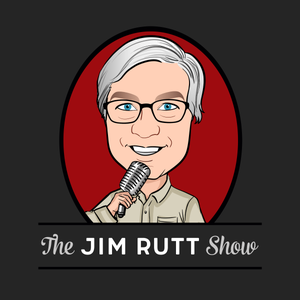EP 273 Gregg Henriques on the Unified Theory of Knowledge
Jim talks with Gregg Henriques about his new book UTOK: The Unified Theory of Knowledge. They discuss the problem the book addresses, 3 vectors of knowing, the metacrisis, avoiding despair & techno-optimism, the enlightenment gap, the iQuad coin, the UTOK garden frame, a descriptive metaphysics for science, behavior & mind, endo-naturalism, 3 kinds of mindedness, webs of justification, the periodic table of behaviors, behavioral investment theory, the influence matrix, the tree of life, why wisdom is the ultimate virtue, the concept of God, the dragon's lair, the fifth joint point, the third attractor, personal information agents, the garden fractal, a transcendent naturalism, and much more.
Episode Transcript
Gregg's blog at Psychology Today
UTOKing with Gregg (Podcast)
JRS EP 176 - Gregg Henriques Part 1: Addressing the Enlightenment Gap
JRS EP 59 - Gregg Henriques on Unifying Psychology
The Emergence of Everything: How the World Became Complex, by Harold J. Morowitz
JRS EP 266 - Marcia Gralha on the Common Core of Psychotherapy and Wokeism in Academia
"In Search of the 5th Attractor," by Jim Rutt
JRS EP 57 - Zak Stein on Education in a Time Between Worlds
First Principles and First Values: Forty-Two Propositions on CosmoErotic Humanism, the Meta-Crisis, and the World to Come, by David J. Temple
Dr. Gregg Henriques is a Professor of Graduate Psychology at James Madison University, where he has worked since 2003. He is a clinical and theoretical psychologist, and founder of UTOK, the Unified Theory of Knowledge, which is a new system of thought that bridges the sciences and humanities into a coherent whole. Dr. Henriques has authored three books, UTOK: The Unified Theory of Knowledge (2024), A New Synthesis for Solving the Problem of Psychology: Addressing the Enlightenment Gap (2022), and A New Unified Theory of Psychology (2011). He has published many professional papers in the field’s top journals, and has a popular blog on Psychology Today, called Theory of Knowledge, which has almost 500 essays and received over 10 million views. Dr. Henriques is a fellow of the American Psychological Association, the 2022 President of the Society for the Exploration of Psychotherapy Integration, and head of the UTOK Circle. He teaches classes in psychotherapy, personality, personality assessment, cognitive psychology, and social psychology. He received his PhD in Clinical Psychology at the University of Vermont, did his postdoctoral training under Aaron T. Beck at the University of Pennsylvania, and is a licensed clinical psychologist in Virginia.
3 December 2024, 9:40 pm
